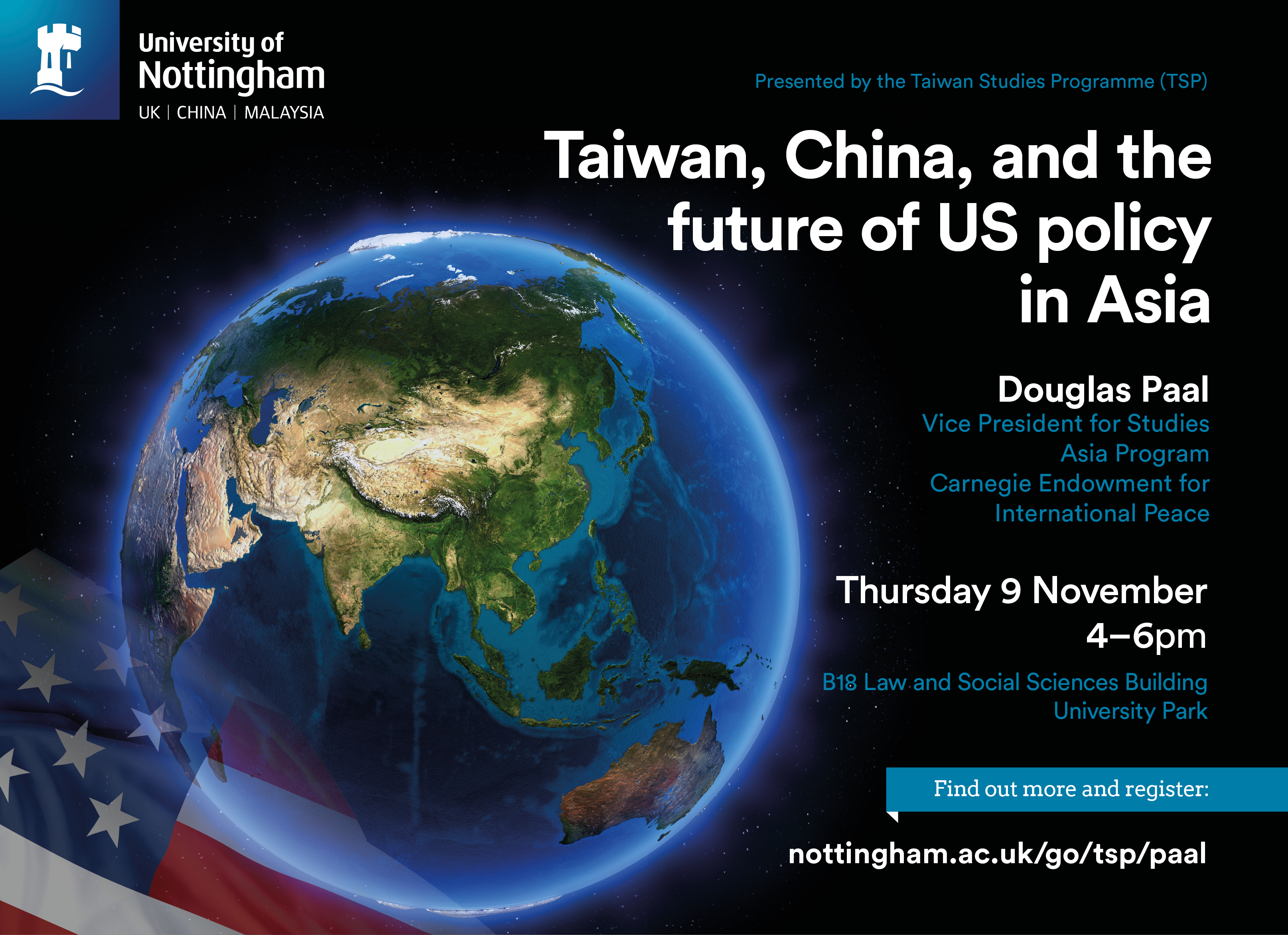Taiwan Studies Programme Lecture — Taiwan, China, and the Future of US Policy in Asia

The Taiwan Studies Programme is delighted to announce that Douglas H. Paal, Vice President for Studies, Asia Program Carnegie Endowment for International Peace will be presenting in the 2017/18 series of Taiwan Studies lectures on “Taiwan, China, and the Future of US Policy in Asia.”
The lecture will be followed by a drinks reception at 5.30pm in B18, Law and Social Sciences Building, University Park.
Speaker biography
Douglas H. Paal is vice president for studies at the Carnegie Endowment for International Peace. He previously served as vice chairman of JPMorgan Chase International (2006-2008) and was an unofficial U.S. representative to Taiwan as director of the American Institute in Taiwan (2002–2006). He was on the National Security Council staffs of Presidents Reagan and George H. W. Bush between 1986 and 1993 as director of Asian Affairs and then as senior director and special assistant to the president.
Paal held positions in the policy planning staff at the State Department, as a senior analyst for the CIA, and at U.S. embassies in Singapore and Beijing. He has spoken and published frequently on Asian affairs and national security issues.
Abstract
China has just concluded its 19th Party Congress. The air is redolent with questions about how much will change and what will continue. After more than a year of extremely cautious avoidance of controversy, especially with its neighbours, Beijing may have a free hand to make strategic and tactical adjustments without fear of their effects on domestic political equities.
For Taiwan, this is a vital moment. Over the past year, personnel adjustments raise the possibility Beijing might seek to increase pressure on Taiwan to return to a formula for relations closer to the “1992 consensus” that prevailed under the previous KMT government, to penalize the current DPP government for independence seeking tendencies, or to press an agenda for early reunification with the mainland.
How this set of possible outcomes is to be managed depends heavily on how the US conducts its relations with China, Taiwan, and the region. It is our project to explore the choices facing Washington, as well as Beijing and Taipei.
Tags: Asia, China, Law and Social Sciences, policy, Taiwan, United States
Leave a Reply
Upcoming Events


